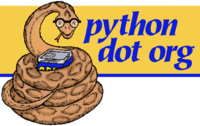Life is full of surprises and irony. Or at least it looks so to me. Especially now.
It’s been more than two years since I planned to learn Python programming language. At first I really wanted to do so, but didn’t have any free time. Then I came across a couple of tasks at work that made me write a few patches here and there, but the complexity just wasn’t there and I didn’t learn anything beyond the simpliest things. Then a lot of time passed by and I forgot those simpliest things too.
Recently I found myself looking at Python code more often than I used to. But I still didn’t have to write any code. Just read and understand.
Then I had to write few more patches. Again, the complexity wasn’t there.
And so on and so forth.
Until today I realized that I have a somewhat complex project to implement and there is practically no choice of programming language. Hooray! I’ll finally have to learn to use Python!
P.S.: I’m glad I was saving up all those Python bookmarks.
 Once in a while I need to write a couple of lines in Python. When that happens I histerically run around the web looking for some quick introduction or tutorial on the language. There are plenty of those, of course. But just to have something handy, I’ll put a link here to
Once in a while I need to write a couple of lines in Python. When that happens I histerically run around the web looking for some quick introduction or tutorial on the language. There are plenty of those, of course. But just to have something handy, I’ll put a link here to